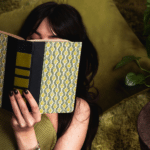In 2012, Suzanne faced an unimaginable tragedy when her husband, Ucal McKenzie, a cherished soccer coach and mentor, fell victim to an abrupt cardiac arrest on the field. The devastating loss left her heartbroken, but it also ignited a powerful spark within her. In response, Suzanne channeled her grief into a meaningful endeavor, giving rise to Able Made, a socially conscious fashion brand. This heartfelt venture not only serves as a tribute to her late husband but also as a vehicle for positive change. Prior to embarking on her current journey, Suzanne had a distinguished career spanning decades, where she lent her creative talents to renowned brands such as Timberland and Tom Ford.
Suzanne holds a deep admiration for women who uplift and support one another. She finds inspiration in remarkable figures like Natalie Portman, Kara Nortman, Julie Uhrman, and Mia Hamm. In a recent interview, Suzanne also revealed her admiration for Elon Musk, citing his fearlessness and bold ventures into uncharted business territories. She firmly advocates for replication, bravery, risk-taking, and the importance of not hesitating to ask for what you want. Her resounding motto? “If you don’t ask, it’s always a ‘no’.”
Suzanne’s journey took a remarkable turn when she became a participant in President Obama’s 2015 Global Emerging Social Entrepreneurship initiative, a prestigious event hosted at the White House. Furthermore, her brand recently formed a notable partnership with the renowned British luxury powerhouse, Burberry, for their groundbreaking MADE2 collection.
“We’re continuously broadening our sustainable collections and collaborating with designers,” says Suzanne. “Part of what’s made this effort successful is that, as we’ve expanded, our mission has remained constant,” Suzanne emphasizes.

Photo Credit To: Jane Owen PR
Inside Suzanne’s Vision of “Conscious Consumerism”
Able Made, spearheaded by Suzanne, stands as a beacon of commitment to the core principles of sustainability and conscious consumerism. Conscious consumerism is a mindful practice that urges individuals to make purchasing decisions that factor in the social, environmental, and ethical consequences of their choices. With an unwavering focus on sustainable materials, equitable labor practices, and minimizing carbon footprints, conscious consumerism fuels the demand for eco-friendly and socially responsible products. It’s akin to shopping through a magnifying glass with a noble purpose.
Suzanne explains, “If you’re producing something, it’s never going to be 100% sustainable, right? There’s always going to be some sort of environmental impact no matter how you try to address sustainability. But there are definitely better practices that can be put in place, and I’m hoping that people can really take that in,” says Suzanne.

Photo Credit To: Jane Owen PR
Homegrown Impact and Stringent Standards
Able Made’s commitment to sustainability is evident in its choices. A staggering 98% of their offerings are crafted within the United States, a deliberate choice that significantly reduces carbon emissions and bolsters local employment opportunities. Their production partners adhere to rigorous standards like the Global Organic Textile Standard (GOTS) and Bluesign criteria.
Collaborative Sustainability
In the spirit of collaborative sustainability, Able Made’s MADE2 initiative partners with like-minded organizations like fashion powerhouse Burberry to repurpose high-quality materials, thereby reducing waste and breathing new life into textiles. This approach effectively minimizes the brand’s environmental footprint, contributing to a more sustainable fashion industry.
People First Approach
Able Made also champions a people-first approach, emphasizing the importance of safe working conditions, fair wages, and the overall well-being of all involved in their production process.
Alternative Techniques
Taking innovation to the forefront, Able Made embraces nature’s sweetness by utilizing vegan leather alternatives sourced from materials such as apple skin and pineapple-leaf fibers. This groundbreaking approach to fashion seamlessly merges style with eco-conscious engineering, benefiting both consumers and the planet.
Partnerships and collective impact
Able Made’s collections and dynamic collaborations with designers have been instrumental in raising awareness and rallying dedicated support for critical causes. Notable organizations such as Pencils of Promise, VH1 Save the Music Foundation, CFDA Fashion Targets Breast Cancer, and esteemed cultural institutions like The Guggenheim Museum, The Met, and The High Line have all felt the positive impact of Able Made’s unwavering commitment to change for the better.
Suzanne’s indomitable spirit and unwavering commitment to sustainability and conscious consumerism have not only fueled the success of Able Made but have also inspired a movement toward more responsible, ethical, and eco-friendly fashion choices. Her dedication to crafting a fashion brand with a conscience, one that champions sustainability, equitable practices, and innovative materials, has left an indelible mark on the industry. Suzanne’s tireless efforts serve as a beacon, illuminating a path toward a more socially responsible and environmentally conscious future. Through Able Made, she has not only paid a heartfelt tribute to her late husband but has also become a catalyst for positive change, leaving a legacy that extends far beyond the world of fashion. Suzanne’s impact is a testament to the profound transformation that can be achieved when passion and purpose converge.
Suzanne’s Able Made will be showcased at their pop up at the prestigious luxury 1 Hotel Brooklyn Bridge.
https://www.1hotels.com/brooklyn-bridge/do/events/able-made-pop-up-0









